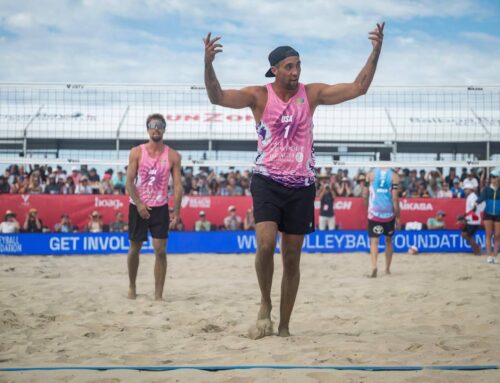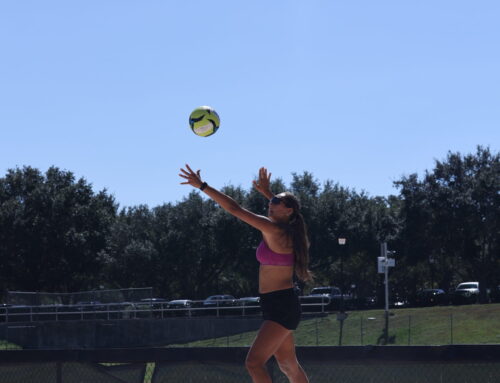HERMOSA BEACH, California – After an improbably successful first year as an independent professional beach volleyball tournament, the Hermosa Open is back.
For three more years.
So enthused was the city of Hermosa Beach about Mark Paaluhi’s event, presented by Wedbush Securities, that it agreed to a three-year deal, alongside Wedbush, to keep professional beach volleyball in Hermosa Beach through 2027.
“Year two!” Paaluhi said on this week’s episode of SANDCAST. “We’re back!”
The tournament will be held on September 4-7 at the Hermosa Beach Pier, beginning with a single-elimination qualifier on Thursday, September fourth. The following three days will consist of a 32-team, double-elimination main draw that will feature two wild cards: one international pairing, and the winner of the Hermosa Beach CBVA the week prior. As it currently stands, prize money is $130,000 total, with $65,000 per gender, though Paaluhi is aiming to increase that number to $200,000, where it was in 2024.
“We had a great event, and hopefully it’ll be just as big if not bigger,” Paaluhi said. “We’re going to do the same thing.”
Register for the Hermosa Open here!
Hermosa Open: The Old School, Pure Beach Volleyball Tournament
It was a distinctly old school event, with the exception of the bigger court and side out scoring. Not only was the tournament double-elimination, but it was a true double-elim, featuring a double-final, should it be needed, and on the women’s side, it was. Terese Cannon and Megan Kraft won every match en route to the finals, only to drop the first to Kelly Cheng and Sara Hughes. Because it was their first loss, however, it went to a double-final, which was won by Cheng and Hughes.
The men’s side required no such final. Chase Budinger and Miles Evans claimed the title – Evans’ first domestic win – beating Miles Partain and Alex Ranghieri.
That latter pairing, too, is a showcase of what makes Hermosa unlike any other event in the world: mixed teams. Partain is the best player in the United States, Ranghieri one of the premier blockers in Italy. No other tour allows such a team – although, to its credit, King of the Court encourages teams such as this, though it is essentially a different sport, given the rules and format differences – and Partain and Ranghieri were one of the most intriguing teams to watch. Other mixed pairs included Julia Donlin and Latvian Tina Graudina, Megan Rice and Canadian Heather Bansley, Betsi Flint and Finland’s Vilhelmiina Prihti, Hailey Hamlett and Ukraine’s Anhelina Khmil, Tim Brewster and Dutchman Mees Sengers, and Theo Brunner and Canadian Sam Schachter.
Off the court, too, Paaluhi is encouraging an old school ethos, bringing the sport back to its grassroots promotion style. Panela’s, a Brazilian restaurant at the corner of Pier Ave., sponsored a players dinner the first night. Tower 12 sponsored player parties during the evenings, and it will again in 2025, Thursday through Saturday. Paaluhi encouraged players to appear for an hour, chop it up with fans, ingratiate themselves in the community supporting the event. Inevitably, this led to many players staying for more than an hour or three.
“That’s as simple as it is,” Paaluhi said. “It’s what we call grassroots marketing.”
It made for one of the more memorable events of the season.
Now it will for three more.


